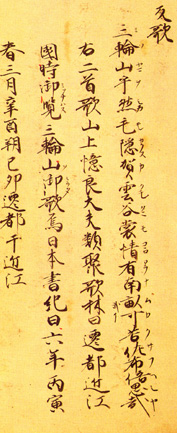
David Barnett Lurie
Wm. Theodore and Fanny Brett de Bary and Class of 1941 Collegiate Professor of Asian Humanities and Associate Professor of Japanese History and Literature
Department of East Asian Languages and Cultures, Columbia University
| The people of bygone ages seem infinitely remote
from us. We do not feel justified in ascribing to
them any underlying intentions beyond those they
formally express; we are amazed when we come upon a
sentiment more or less akin to what we feel today in
a Homeric hero, or a skillful tactical feint by
Hannibal during the battle of Cannae, where he let
his flank be driven back in order to take the enemy
by surprise and encircle him; it is as though we
imagined the epic poet and the Carthaginian general
to be as remote from ourselves as an animal seen in
a zoo.
Marcel Proust, The
Guermantes Way
|
| Philology is that venerable art which demands of
its votaries one thing above all: to go aside, to
take time, to become still, to become slow--it is a
goldsmith's art and connoisseurship of the word
which has nothing but delicate, cautious work to do
and achieves nothing if it does not achieve it lento.
But for precisely this reason it is more necessary
than ever today, by precisely this means does it
enchant and entice us most, in the midst of an age
of 'work,' that is to say, of hurry, of indecent and
perspiring haste, which wants to get everything done
at once, including every old or new book:--this art
does not so easily get anything done, it teaches to
read well, that is to say, to read slowly,
deeply, looking cautiously before and aft, with
reservations, with doors left open, with delicate
eyes and fingers . . .
Friedrich Nietzsche, Daybreak
|